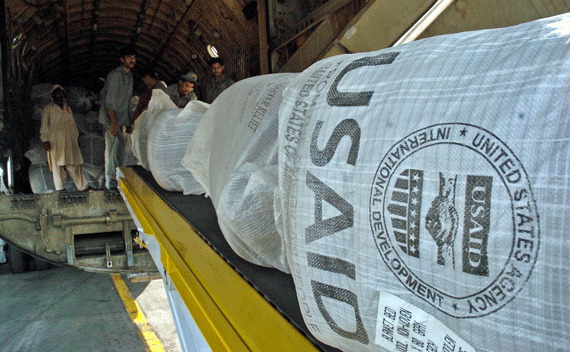Guest Post: Is Cutting Off U.S. Aid to Pakistan a Good Idea?
More on:

When I introduced the guest post that Dan Markey kindly wrote this morning, I mentioned Lawrence Wright’s recent article in the New Yorker. Dan offered these thoughts on the Wright piece. The upshot is: We need to revamp our aid to Pakistan, but don’t expect ending aid or cutting it deeply to produce miraculous changes in Pakistani policy.
Like Wright, I’d agree that U.S. money has fed the rot of the Pakistani state, at least in the context of the Afghan war and the post-9/11 period. That said, at critical points in the nation’s history, Pakistan’s civilians have repeatedly been ineffective defenders of their "democracy" in ways that their Indian counterparts have not.
For instance, Zulfikar Ali Bhutto squandered his popular legitimacy--through increasingly dictatorial abuses--before he was hanged by Zia, whereas Indira Gandhi’s authoritarian tendencies were ultimately pulled back. Hard to argue that either of these developments resulted from the presence or absence of U.S. assistance. Philip Oldenburg’s recent comparison of India and Pakistan makes the argument that these events set in motion patterns of behavior that persist to this day.
As for the present capacity of Pakistan’s civilian politicians...well, I think Wright is overly optimistic about their collective ability--or interest--to control the army and govern more effectively. This is not an argument for doing more of the same. For instance, I agree that U.S. trade would be a lot better than aid. And returning to an earlier pattern of "demand driven" assistance would be a major improvement over recent practice. The USAID mission in Islamabad has been pushing in this direction over the past eighteen months, but it has faced a series of obstacles, internal and external, that it has yet to overcome.
It is true that a lot of Pakistanis are now suggesting they’d be better off without U.S. money. I heard it more than a few times over the past week in Islamabad. Unfortunately, most of them would also prefer to break ties with us, to stop pushing hard against internal militancy, and to have Pakistan "go its own way," presumably with the blessing of China and Saudi Arabia. Among them are many false reformers, false democrats, deluded about Pakistan’s economic realities, and hardly capable or eager to change the behavior of the ISI or the Pakistani military regarding the Haqqani network, Lashkar-e-Taiba or any of the other security threats Wright lists. Yes, some are genuine nationalists who understand that Pakistan would be healthier if it stood on its own two feet, but they are a minority.
In Pakistan since 9/11, we’ve spent a tiny fraction of what we have spent in Afghanistan or Iraq. We’ve gotten marginal cooperation, and we’ve done too little to address the underlying reasons for Pakistan’s mess. We have cared less about Pakistan’s internal developments than about al-Qaeda or supplying the Afghanistan war.
I only worry that Wright’s argument will reinforce a simplistic notion that if we cut assistance, we’ll get something better from Pakistan. I heard similar things a few years ago from people who thought that getting rid of Musharraf would make everything better. No question, it was good to see the end of the Musharraf regime, but look where we are now.
Bottom line, Wright is correct that our military assistance offers limited leverage and comes with dangerous side effects. If we want to improve Pakistan’s situation, we will have to change our approach on military assistance--and a whole lot more as well.
Question for TWE readers: Should the United States cut back or end its aid to Pakistan?
More on:
 Online Store
Online Store